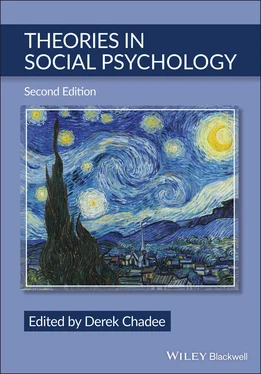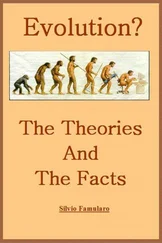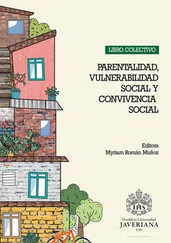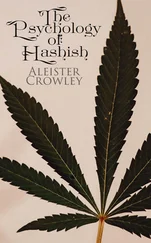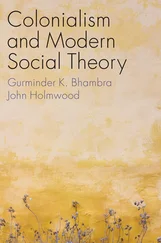Theories in Social Psychology
Здесь есть возможность читать онлайн «Theories in Social Psychology» — ознакомительный отрывок электронной книги совершенно бесплатно, а после прочтения отрывка купить полную версию. В некоторых случаях можно слушать аудио, скачать через торрент в формате fb2 и присутствует краткое содержание. Жанр: unrecognised, на английском языке. Описание произведения, (предисловие) а так же отзывы посетителей доступны на портале библиотеки ЛибКат.
- Название:Theories in Social Psychology
- Автор:
- Жанр:
- Год:неизвестен
- ISBN:нет данных
- Рейтинг книги:5 / 5. Голосов: 1
-
Избранное:Добавить в избранное
- Отзывы:
-
Ваша оценка:
- 100
- 1
- 2
- 3
- 4
- 5
Theories in Social Psychology: краткое содержание, описание и аннотация
Предлагаем к чтению аннотацию, описание, краткое содержание или предисловие (зависит от того, что написал сам автор книги «Theories in Social Psychology»). Если вы не нашли необходимую информацию о книге — напишите в комментариях, мы постараемся отыскать её.
—Robert J. Sternberg,
—Phillip G. Zimbardo, Ph.D., Theories in Social Psychology
Theories in Social Psychology, Second Edition,
Theories in Social Psychology — читать онлайн ознакомительный отрывок
Ниже представлен текст книги, разбитый по страницам. Система сохранения места последней прочитанной страницы, позволяет с удобством читать онлайн бесплатно книгу «Theories in Social Psychology», без необходимости каждый раз заново искать на чём Вы остановились. Поставьте закладку, и сможете в любой момент перейти на страницу, на которой закончили чтение.
Интервал:
Закладка:
93 Hong, S.-M., & Ostini, R. (1989). Further evaluation of Merz’s psychological reactance scale. Psychological Reports, 64(3), 707–710. https://doi.org/10.2466/pr0.1989.64.3.707
94 Hong, S.-M., & Page, S. (1989). A psychological reactance scale: Development, factor structure and reliability. Psychological Reports, 64(3_suppl), 1323–1326. https://doi.org/10.2466/pr0.1989.64.3c.1323
95 Hopp, T. (2015). The effect of numeracy on the relationship between state reactance and message evaluations. Communication Research Reports, 32(4), 314–321. http://dx.doi.org/10.1080/08824096.2015.1089855
96 Huck, N. O. (1998). Psychological reactance and Millon’s personality theory: An integrative comparison. Unpublished doctoral dissertation. Kent State University.
97 Inman, R. A., Sousa, A. M., Cunha, D., & Moreira, P. (2019). Therapeutic reactance in adolescents: The psychometrics of the Therapeutic Reactance Scale in adolescents. Scandinavian Journal of Child and Adolescent Psychiatry and Psychology, 7(1), 20–28. https://doi.org/10.21307/sjcapp-2019-003
98 Johnson, P., & Buboltz, W. C., Jr. (2000). Differentiation of self and psychological reactance. Contemporary Family Therapy, 22(1), 91–102. https://doi.org/10.1023/A:1007774600764
99 Johnson, E. J., & Tversky, A. (1983). Affect, generalisation, and the perception of risk. Journal of Personality and Social Psychology, 45(1), 20–31. https://doi.org/10.1037/0022-3514.45.1.20
100 Jonason, P. K. (2007). Further test of validity for the one dimensional Hong’s psychological reactance scale. Psychological Reports, 101(3), 871–874. https://doi.org/10.2466/PR0.101.7.871-874
101 Jonason, P.K., Bryan, A. & Herrera, (2010). Trimming the Fat Reveals a One-Factor Construct of Hong’s Psychological Reactance Scale. Individual Differences Research 8(4), 220–228.
102 Jonason, P. K., & Knowles, H. M. (2006). A unidimensional measure of Hong’s Psychological Reactance Scale. Psychological Reports, 98(2), 569–579. https://doi.org/10.2466/pr0.98.2.569-579
103 Joubert, C. E. (1990). Relationship among self- esteem, psychological reactance and other personality variables. Psychological Reports, 66(3_suppl), 1147–1151. https://doi.org/10.2466/pr0.1990.66.3c.1147
104 Kakihara, F., & Tilton-Weaver, L. (2009). Adolescents’ interpretations of parental control: Differentiated by domain and types of control. Child Development, 80(6), 1722–1738. https://doi.org/10.1111/j.1467-8624.2009.01364.x
105 Kang, G. W., Piao, Z. Z., & Ko, J. Y. (2021). Descriptive or injunctive: How do restaurant customers react to the guidelines of COVID-19 prevention measures? The role of psychological reactance. International Journal of Hospitality Management, 95, 102934. https://doi.org/10.1016/j.ijhm.2021.102934
106 Kelly, K., Borders, L. D., & Jones, C. (2019). Counseling students’ emotions during cultural immersion: impact on reactance. Counselor Education and Supervision, 58(3), 195–208. https://doi.org/10.1002/ceas.12150
107 Keltner, D., Ellsworth, P. C., & Edwards, K. (1993). Beyond simple pessimism: Effects of sadness and anger on social perception. Journal of Personality and Social Psychology, 64(5), 740–752. https://doi.org/10.1037/0022-3514.64.5.740
108 Kim, J. (2019). Reactance against public health norms: A psychological explanation for users’ counter-conformity to public opinion on e-cigarettes. The University of Wisconsin-Madison.
109 Kim, S. Y., Levine, T., & Allen, M. (2013). Comparing separate process and intertwined models for reactance. Communication Studies, 64(3), 273–295. http://dx.doi.org/10.1080/10510974.2012.755639
110 Kirk, C. P., & Rifkin, L. S. (2020). I’ll trade you diamonds for toilet paper: Consumer reacting, coping and adapting behaviors in the COVID-19 pandemic. Journal of Business Research, 117, 124–131. https://doi.org/10.1016/j.jbusres.2020.05.028
111 Kokkoris, M. D. (2020). Choice as a meaning-making device for maximizers: evidence from reactance to restrictions of choice freedom during lockdown. Frontiers in Psychology, 11, 1–6. https://doi.org/10.3389/fpsyg.2020.571462
112 Kornberg, A., Linder, D., & Cooper, J. (1970). Understanding political behaviour: The relevance of reactance theory. Midwest Journal of Political Science, 14(1), 131–138. https://doi.org/10.2307/2110395
113 Kostic, A., Chadee, D., & Nedeljkovic, J. (2011). Subjective evaluation of emotional experience in two cultures: Serbia and Trinidad. In D.Chadee & A.Kostic (Eds.), Social Psychological Dynamics. University of the West Indies Press.
114 Krpan, D., & Dolan, P. (2021). You must stay at home! The impact of commands on behaviors during COVID-19. Social Psychological and Personality Science. https://doi.org/10.1177/19485506211005582
115 Laurin, K., Kay, A. C., & Fitzsimons, G. J. (2012). Reactance versus rationalization: Divergent responses to policies that constrain freedom. Psychological Science, 23(2), 205–209. https://doi.org/10.1177/0956797611429468
116 Laurin, K., Kay, A. C., Proudfoot, D., & Fitzsimons, G. J. (2013). Response to restrictive policies: Reconciling system justification and psychological reactance. Organizational Behavior and Human Decision Processes, 122(2), 152–162. https://doi.org/10.1016/j.obhdp.2013.06.004
117 LaVail, K. H., Anker, A. E., Reinhart, A., & Feeley, T. H. (2010). The persuasive effects of audiovisual PSAs to promote organ donation: The mediating role of psychological reactance. Communication Studies, 61(1), 46–69. https://doi.org/10.1080/10510970903400337
118 LaVoie, N. R., Quick, B. L., Riles, J. M., & Lambert, N. J. (2017). Are graphic cigarette warning labels an effective message strategy? A test of psychological reactance theory and source appraisal. Communication Research, 44(3), 416–436. https://doi.org/10.1177/0093650215609669
119 Lazarus, R. S. (1982). Thoughts on the relations between emotion and cognition. American Psychologist, 37(9), 1019–1024. https://doi.org/10.1037/0003-066X.37.9.1019
120 Lazarus, R. S. (1991). Emotion and adaptation. Oxford University Press.
121 Lee, E., Kim, Y. J., Lim, Y. S., & Kim, M. (2015). Trait reactance moderates Facebook users’ irritation with brand communication. Social Behavior and Personality: An International Journal, 43(5), 829–844. https://doi.org/10.2224/sbp.2015.43.5.829
122 Lerner, J. S., & Keltner, D. (2001). Fear, anger, and risk. Journal of Personality and Social Psychology, 81(1), 146–159. https://doi.org/10.1037/0022-3514.81.1.146
123 Levenson, R. W., Ekman, P., & Friesen, W. V. (1990). Voluntary facial action generates emotion-specific autonomic nervous system activity. Psychophysiology, 27(4), 363–384. https://doi.org/10.1111/j.1469-8986.1990.tb02330.x
124 Lienemann, B. A., & Siegel, J. T. (2016). State psychological reactance to depression public service announcements among people with varying levels of depressive symptomatology. Health Communication, 31(1), 102–116. https://doi.org/10.1080/10410236.2014.940668
125 Linder, D. E., & Crane, K. A. (1970). Reactance theory analysis of predecisional cognitive processes. Journal of Personality and Social Psychology, 15(3), 258–264. https://doi.org/10.1037/h0029396
126 Linder, D. E., Wortman, C. B., & Brehm, J. W. (1971). Temporal changes in predecision preferences among choice alternatives. Journal of Personality and Social Psychology, 19(3), 282–284. https://doi.org/10.1037/h0031365
127 Lindsey, L. L. M. (2005). Anticipated guilt as behavioral motivation: An examination of appeals to help unknown others through bone marrow donation. Human Communication Research, 31(4), 453–481. https://doi.org/10.1093/hcr/31.4.453
128 Lowenthal, E., Matesva, M., Marukutira, T., Bayani, O., Chapman, J., Tshume, O., Matshaba, M., Hickson, M., & Gross, R. (2021). Psychological reactance is a novel risk factor for adolescent antiretroviral treatment failure. AIDS and Behavior, 25(5), 1474–1479. https://doi.org/10.1007/s10461-020-02986-z
Читать дальшеИнтервал:
Закладка:
Похожие книги на «Theories in Social Psychology»
Представляем Вашему вниманию похожие книги на «Theories in Social Psychology» списком для выбора. Мы отобрали схожую по названию и смыслу литературу в надежде предоставить читателям больше вариантов отыскать новые, интересные, ещё непрочитанные произведения.
Обсуждение, отзывы о книге «Theories in Social Psychology» и просто собственные мнения читателей. Оставьте ваши комментарии, напишите, что Вы думаете о произведении, его смысле или главных героях. Укажите что конкретно понравилось, а что нет, и почему Вы так считаете.
